Inside the Rugby Australia overhaul that has helped engineer stunning Wallabies turnaround
The Wallabies’ turnaround in form comes on the back of a Rugby Australia rebuild that has seen a staggering 28 staff members leave the organisation and fresh blood enter a streamlined system.
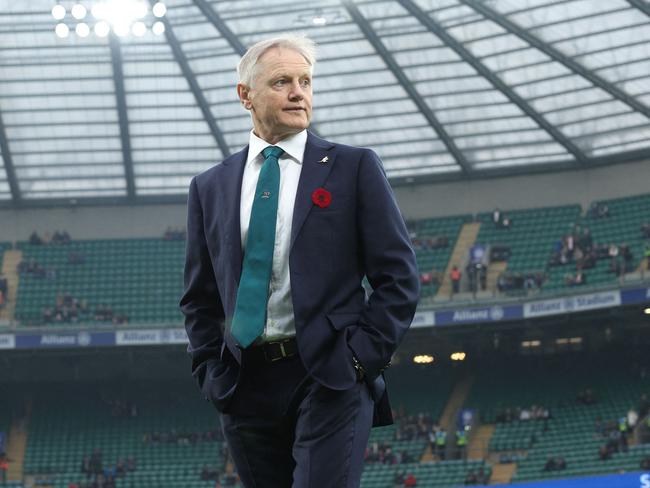
Joe Schmidt has restored trust in the Wallabies locker room following the disastrous 2023 World Cup campaign led by Eddie Jones, and Rugby Australia is now prepared to get “creative” to keep Schmidt beyond his contract that expires at the end of the British & Irish Lions series.
The Wallabies have fashioned one of the great sporting turnarounds, from bowing out of the World Cup in the pool stages for the first time, to 12 months later being on the precipice of winning a Grand Slam.
RA chief executive Phil Waugh, and high performance director Peter Horne, have been chief architects of a rebuild that has seen a staggering 28 staff members leave the organisation and fresh blood enter a streamlined system that now shares data across the Wallabies, Wallaroos and men’s and women’s Sevens programs.
Jones’ disastrous tenure not only saw him and chairman Hamish McLennan walk away, but key Wallabies staff members including team manager Chris Webb, defence coach Brett Hodgson, forwards co-ordinator Neil Hatley, maul consultant Pierre-Henry Broncan, kicking consultant Berrick Barnes and learning co-ordinator David Rath.
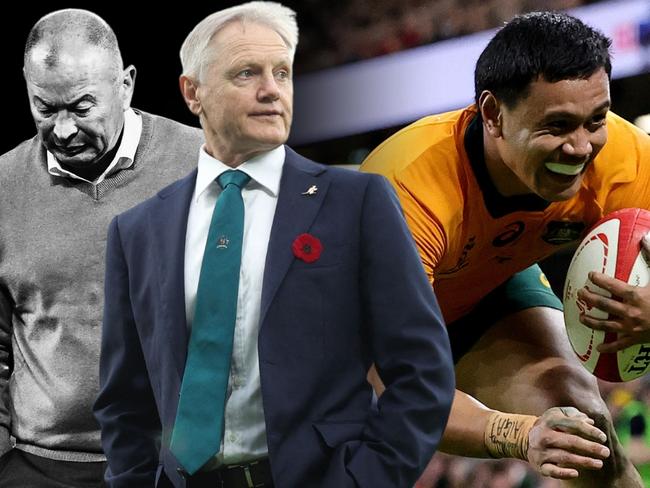
Schmidt built his own team, including assistants Laurie Fischer, Mike Cron, Geoff Parling and Eion Toolan, and the Wallabies now have a chance to claim their first Grand Slam in 40 years if they can defeat Scotland and Ireland.
“I think that the environment that he’s created has been one that’s built a lot of trust across that Wallaby team, which has been most pleasing given where the team was coming from,” Waugh said.
But now comes the challenge in trying to keep Schmidt beyond August next year, when the Kiwi’s deal expires.
Schmidt’s family remains in New Zealand and he is keen to spend more time with them.
“We’re certainly very respectful of Joe’s commitments both with us and outside of rugby and we will be working together over the next period of time to work through what’s the best outcome for him and his family, and also how that works through for the best outcomes with the Wallabies,” Waugh said.
“We’re pretty open-minded on what that may look like and can get reasonably creative on the set-up of the team structure, but again we haven’t embarked on those conversations yet.
“I think that they’ve been doing a lot of hard work on getting the performances right on the field.”
Horne had a longstanding friendship with Schmidt, having worked together at World Rugby, and when seeking a new Wallabies coach, was looking for a certain quality.
“You always want to work with people where it’s not about them,” Horne said.
“It’s about actually trying to work collectively, doing something bigger than yourself. And when you find those people, you naturally come together and you’re more likely to be successful.
“The one thing that I find about Joe is he cares about the game. He loves the team. He loves his players.
“And it’s pretty hard not to be encouraged when you’re around him. He’s got that sort of feeling of, just brings you together.
“I think he’s the right man for the right time.
“We needed to move forward, but we need to move forward collectively. And he has got an ability to bring people, whether it’s at a Super, club level or whether it’s in the community or whether it’s just a player within the team, he has an ability to bring us all together as one.
“That’s his superpower, to be honest.”
Waugh, the former Wallabies flanker who has risen to run the game in its darkest hour, recalls the feeling when Australia was bundled out in Paris last year after defeats to Fiji and Wales.
“I was hurting, and pretty similar to when you put on a Wallaby jersey, it’s a huge honour, it’s also a huge responsibility to perform and clearly in the role I’m in, I’ve got a responsibility to have our national teams performing,” Waugh said.
“So both personally and organisationally I know that there was a lot of pain, and it was our responsibility to rectify the situation, to again build trust across the rugby ecosystem but more broadly across the Australian public.
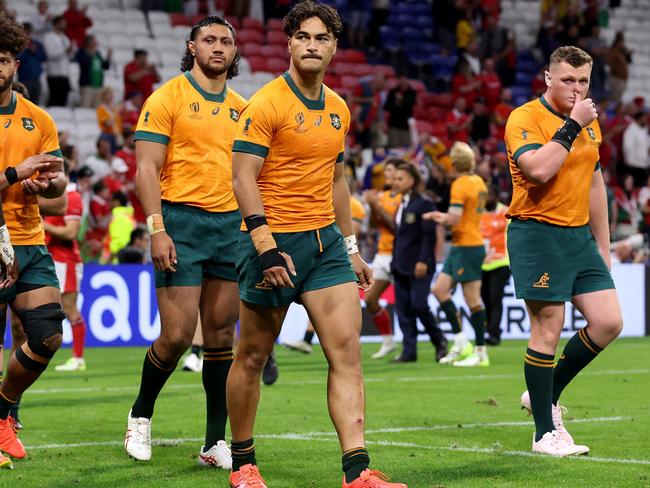
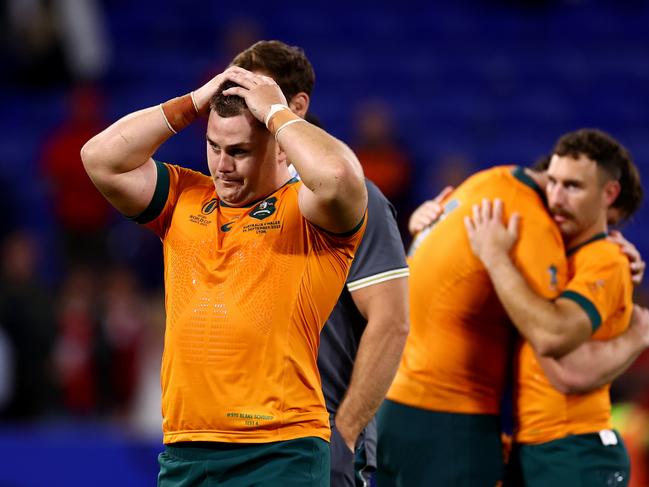
“And you can’t build trust quickly. It takes time, and hopefully some of the disciplined decisions that we’ve made over the last 12 months have earned back a little bit of that trust, while conscious that we still have a fair bit to do.
“The way that we were able to reset post October last year was pleasing because we’ve got good people around the organisation, but clearly the flagship product is the Wallabies environment and we had again a lot of commentary, 28 staff within the Wallaby environment (departing), and we pretty much had a clean slate in November of how we could construct the high performance area, and in particular the Wallabies.
“So having a clean slate and looking at how we can structure the environment and select the best possible people to drive a high performance environment was probably the moment where we then followed through with a lot of discipline and consideration of appointments.
“Clearly landing Joe Schmidt was very pleasing given his background and credibility not just within the Australian market but his credibility globally, it was a very pleasing time because we had other good candidates but Joe’s just such an outstanding candidate when you look at his background and his history of winning.”
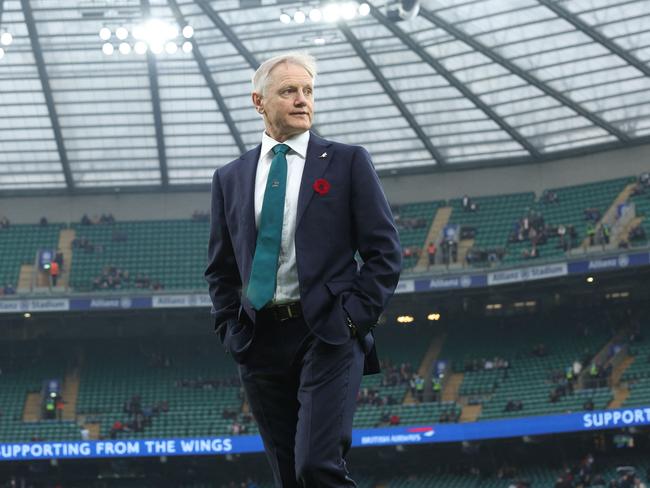
While Schmidt has the Wallabies surging back as Australia’s favourite national team, Horne is chipping away in the background on a broader plan.
“Joe will talk about focusing on the next training session, I think about it a little more broadly, around stages over a multi-cycle and how do we build off that?” Horne said.
“So I take more of a macro look at it, but we still only ever look to try and build piece by piece and hopefully when we aggregate it all together, it actually builds something really, really special.
“It’s been a fantastic thing that the people have come along on the journey, but we’re only in the first stage of it. This is a multi-year, long change management process.
“It’s been double decade without success, you know what I mean? It’s been lean.
“I’m really mindful that we just keep on working on what’s ahead of us, that we building step-by-step if we falter, because Joe always talks about success is not linear, and I absolutely agree with him. Sometimes you’ve got to take two steps forward and three back, to go four forward.
“You can’t keep on winning and expect to learn all the time.
“And when you have a trusting environment, people are willing to put their hand up and say, ‘Okay, I’ve got it wrong’. It’s okay, right. Just let’s keep working forward.
“There’s plenty of things I’d love to have done in the last eight months that haven’t got off the ground, but I feel like there’s a lot of change happening really quickly.
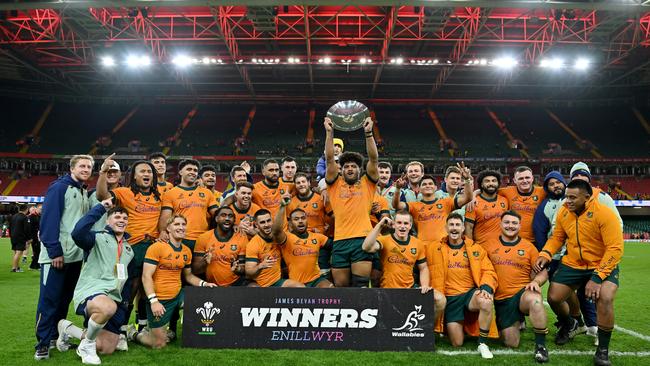
“Historically, we’re sitting in silos, so Sevens programs, women’s programs, Super Rugby clubs on the side.
“Now we intersect every single program, what we do around strategy has an impact on Super Rugby clubs and our national programs, operations, logistics are all centrally managed except for Super Rugby, which is done through Super Rugby Pacific group, the new body.
“”What I really want to make sure is that we create a sustainable system that produces results so that we don’t go through lean periods.
“I’m not going to sit here and tell you we’re going to be lifting trophies on a regular basis. I think that would be disingenuous.
“But what I do say is that everything that we do is in trying to be the best possible team that we can be, the best possible people that we can be and good role models for Australia as a primary focus.
“And if we can do that, I think Australia will not only be proud of us, but I think we’ll be doing ourselves and the organisation and the sport a service to get back to where it should be.”
Still, it will be a tall order for the world No.8 ranked Wallabies to knock off sixth-ranked Scotland in Edinburgh on Monday (12.40am AEDT).
“I’ve spent a lot of time in that Wallaby changeroom over the last period of time and you get that strong sense of connection across the group, as well as a strong sense of humility and team first attitude which is really pleasing,” Waugh said.
“We’re seeing that come through in aspects of their game, and their games aren’t perfect, but the level of connectivity, care, trust and attention to detail is driving to the outcomes that they’re getting.
“The behaviour is how you see the true reflection of a culture, and we’re seeing aspects of performance both on and off the field that respect a really strong culture, and that’s leading to the right outcomes.”




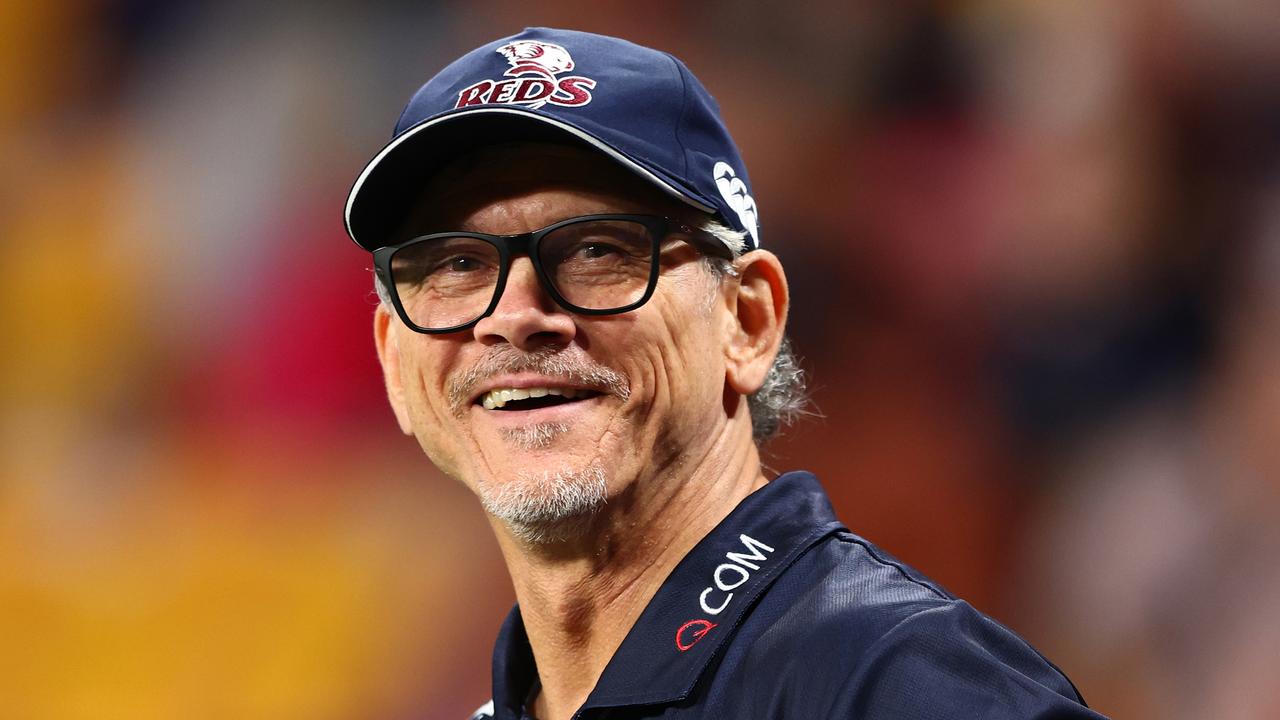
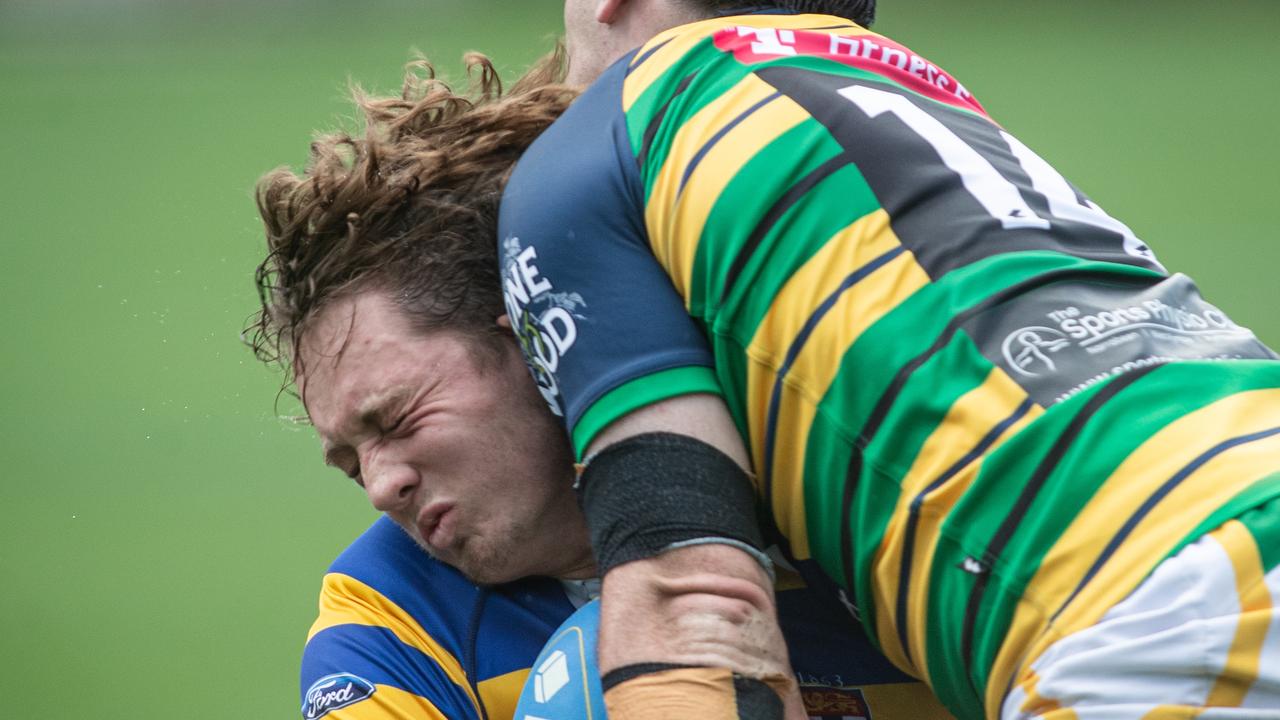
To join the conversation, please log in. Don't have an account? Register
Join the conversation, you are commenting as Logout